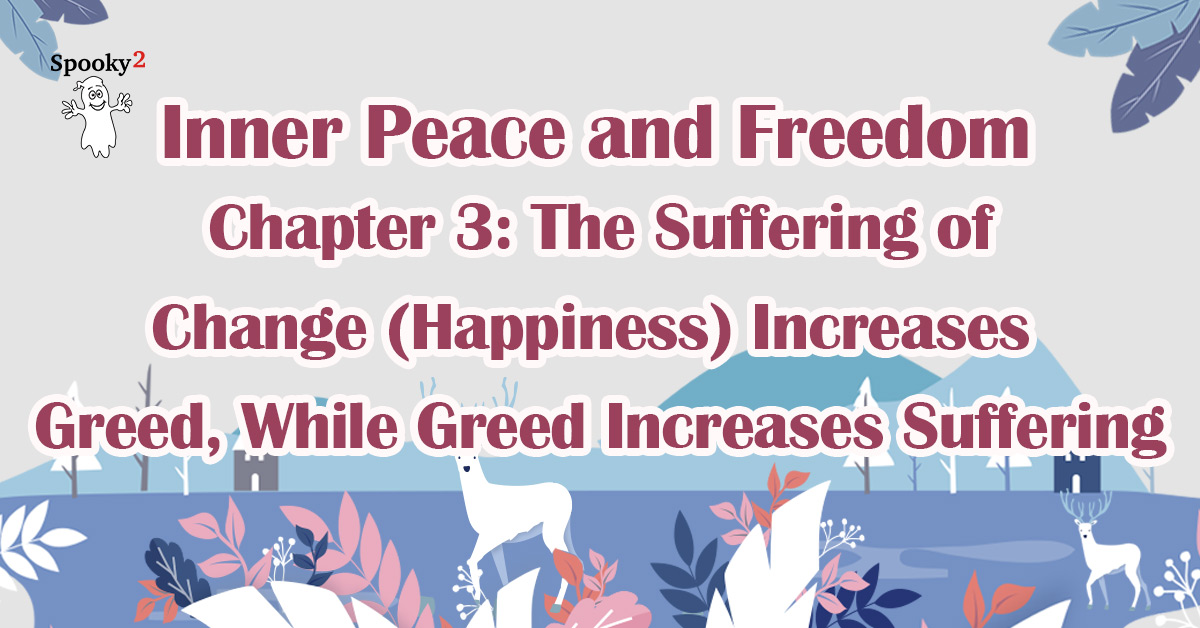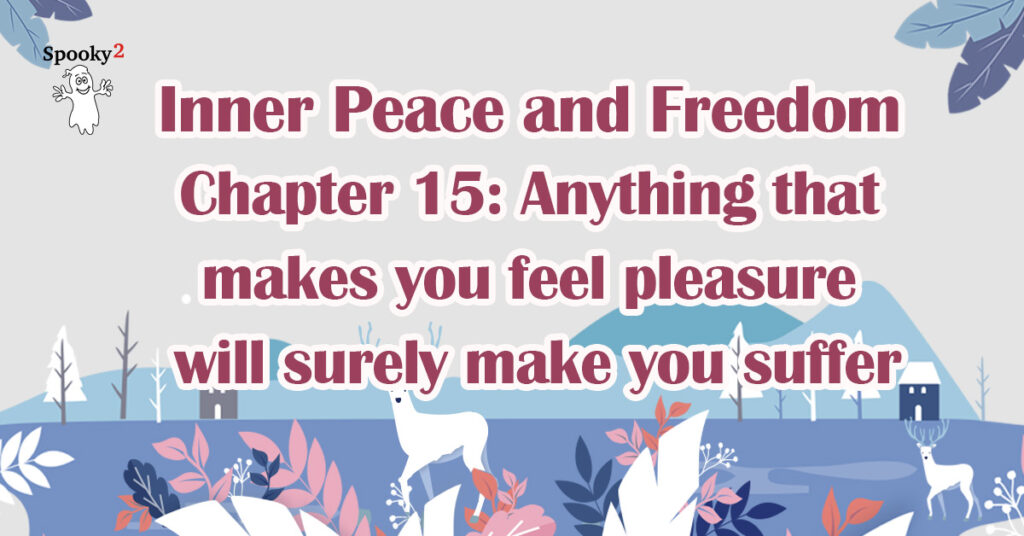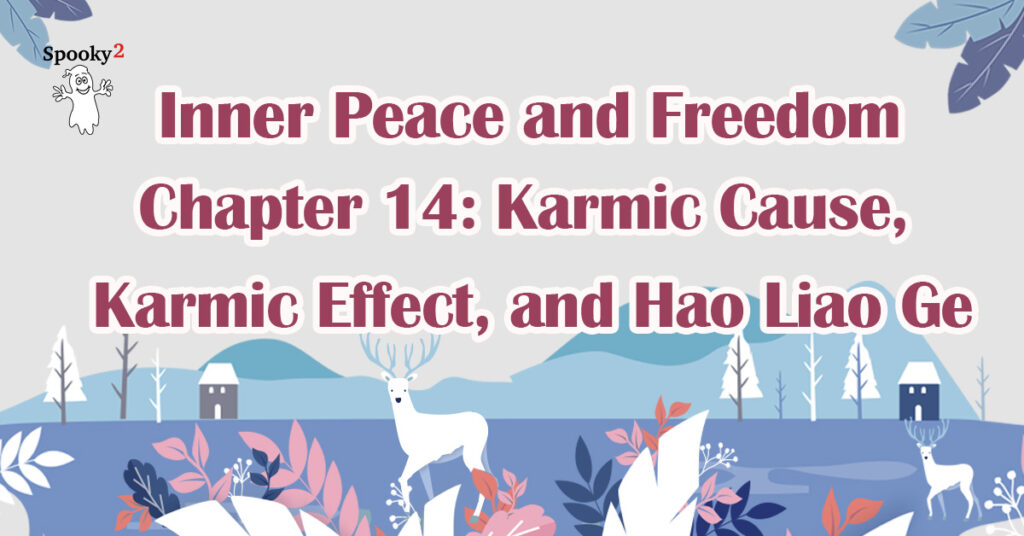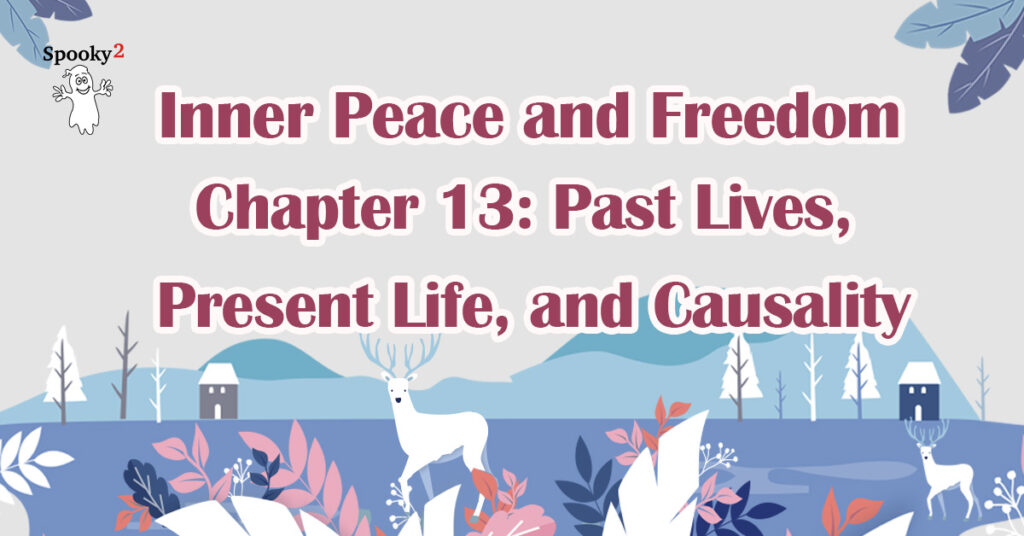We are constantly pursuing happiness, but why do we end up with suffering?
Can you see through the cycle from happiness to suffering?
Today, let’s continue to explore the suffering of change (happiness) and desire.
In the previous lecture, we discussed that if a person does something that alleviates their psychological and physical suffering, as well as their negative emotions, then they will develop an attachment for this suffering of change (happiness), wanting this alleviation of suffering to continue. As a result, they will keep repeating this action until the suffering is temporarily removed. However, suffering and negative emotions will arise again, so they have to repeat this action over and over again.
The term “attachment” means that when the suffering of change (happiness) arises, the mind is attached to it, like oil stains on cloth that are difficult to wash away. When the mind is attached to the suffering of change (happiness), it is difficult to let go.
As we repeatedly alleviate from suffering, our attachment grows, which further increases the suffering of not getting what one wants, the suffering of separation from what one loves, as well as various psychological and physical sufferings.
Every time when we repeat this activity, we habituate this attachment; then we become more fond of doing it, and this attachment turns into desire.
At this point, this activity has become one’s hobby, and one will do it more frequently. As a result, the constantly growing attachment turns into greed.
As greed grows, one becomes addicted to the activity, and the greed turns into avarice. This is known as an addict.
What does “addiction” mean? In medical terms, “addiction” is defined as a habit or dependence formed due to frequent external stimuli on the central nervous system.
“Addict” refers to a person who has a certain addiction beyond their control. Therefore, addiction is already pathological, which is difficult to treat.
When a person becomes addicted to something, it will severely impact their life, family, and work. In more severe cases, it may even lead them to commit crime, resulting in various physical and mental sufferings.
The most typical example is drug addiction, so let’s use it as an example to elaborate. Most drug addictions are the result of spiritual emptiness, boredom, negativity and pessimism, high mental stress, long-term low mood or depression, or feeling disgusted and helpless about life.
Drugs can numb the nervous system, providing temporary relaxation to the body and mind. Under this influence, hallucinations and a sense of ecstasy may emerge, thereby temporarily alleviating the negative emotions such as spiritual emptiness, decadence, and depression.
However, taking drugs is like drinking poison to quench thirst. After the drug’s effects have diminished, their meridians become blocked and tightened again. Their nervous system, like a deformed mechanical spring, is unable to naturally recover. As a result, indescribable and excruciating suffering will arise in their body and mind. Consequently, they need more drugs to numb the nerves, open up the meridians, relax the body and mind, and alleviate the suffering.
In fact, many activities, if done frequently over time, will turn into hobbies. For example, making money, binge-watching, idolizing celebrities, music, calligraphy and painting, dancing, gaming, ball games, sports, competing, playing mahjong, gambling, pursuing power, and even seeking truth, etc.
During the hobby stage, not getting satisfied may bring some mental suffering and negative emotions, but it can still be controlled. However, if we continue to indulge in it and become increasingly immersed, it is no longer in the same category as hobbies—it becomes an addiction. If not satisfied, the mental suffering and negative emotions will be intense. At this point, we can’t help ourselves. Over time, our organs may start to go wrong, and gradually, the body will fall ill.
For example, nowadays many people suffer from heart disease, the three highs, cancer, etc., and even more psychological illnesses. Various weird illnesses in the body and mind lead to various physical sufferings. Long-term suffering will accelerate death.
Another possibility is that when a person engages in an activity and becomes more and more addicted, then over time, the psychological suffering such as the suffering of not getting what one wants and the suffering of separation from what one loves, along with various negative emotions, will intensify and torture them for a long time. As a result, they may turn to immoral or even illegal activities. In the end, they may find life unbearable, or even commit suicide. They may also end up with a mental breakdown and be sent into a psychiatric hospital.
In summary, the root of desire is the suffering of change (happiness). By constantly habituating and increasing the attachment to the suffering of change (happiness), desire arises.
If a desire is not satisfied, it will cause psychological sufferings such as the suffering of not getting what one wants, the suffering of separation from what one loves, and the suffering of encountering what one dislikes. It may also indirectly lead to physical illnesses.
If the desire is satisfied, then due to habituation, it will grow stronger, turning into greed or even avarice.
If the greed and avarice cannot be continuously satisfied, it will lead to stronger psychological suffering and negative emotions, as well as various physical pains.
If the greed and avarice can be continuously satisfied, that’s even worse. It will quickly consume one’s energy and spirit, causing rapid aging, illness, and death.
Now let’s summarize from another perspective. Human beings, driven by various physical and psychological needs, have to constantly explore and learn to find fast and convenient ways to meet those needs. In order to get the conditions for satisfying their needs, humans have to work hard.
While meeting their needs, attachment arises and grows, which further gives rise to various physical and psychological sufferings.
Being compelled by various physical and psychological sufferings, humans are constantly seeking methods to alleviate them. Yet, when their suffering is alleviated, attachment arises and grows too, giving rise to various negative emotions such as anger, creating a vicious circle.
This is our life.
In this high-tech era, both in the East and the West, with the lack of faith and the decline in morality, most people advocate individualism, hedonism, and liberalism. More and more addictive activities are emerging, and humanity is falling from grace. More and more factors lead to psychological illnesses, and their incidence rate is also increasing. The future of humanity is really alarming!



